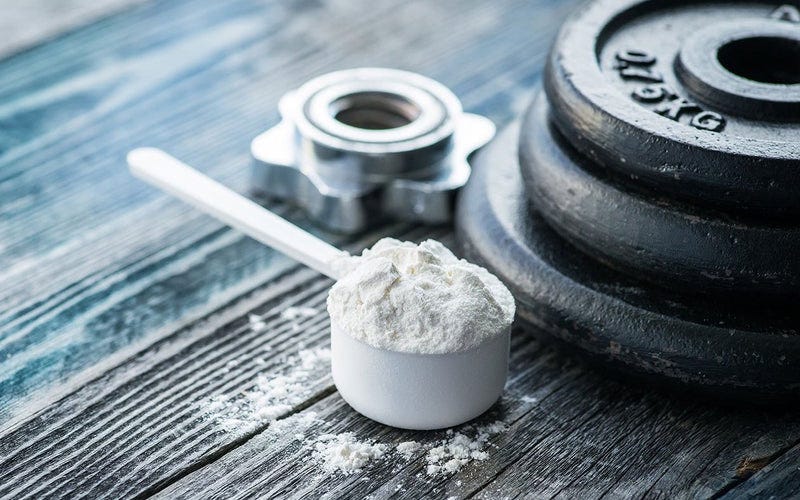Creatine
DISCLAIMER
This is not Medical Advice and while the writer believes what he has shared, substack dot com does not equate to strong evidence. Please do not treat patients based on what is read in this post, these are opinions of an internet stranger. Instead use these posts as a starting point for furthering your own study & education.
When you think “creatine” likely the first image in your mind is a dude tryna get jacked. As the most studied exercise supplement in existence, there is an abundance of research which suggests that creatine supplementation can improve athletic performance. While this is true, there is also growing research that suggests that this naturally occurring compound may also influence (improve) depressive symptoms.
As we know, depression is better described as a syndrome than a disease. Characterized by a constellation of signs and symptoms, a variety of factors can precipitate depressive symptoms. With that said, one theory suggests that people with depression may have lower levels of creatine in their brains, which could contribute to the development of depressive symptoms. Research has shown that supplementing with creatine can increase the levels of this compound in the brain, leading to improved brain function and reduced symptoms of depression.
In a randomized, double-blind, placebo-controlled study, researchers found that creatine supplementation significantly improved symptoms of depression in women with major depressive disorder. Additionally, creatine supplementation has been shown to increase brain-derived neurotrophic factor (BDNF), a protein that plays a crucial role in promoting brain cell growth and preventing their death. People with depression often have lower levels of BDNF, which can contribute to the development of depressive symptoms. Creatine supplementation can help increase BDNF levels in the brain, which can improve mood and cognitive function.
Another, smaller study, took 10 participants with treatment resistant depression. 8 participants had unipolar depression, and 2 of them had bipolar depression. The participants were treated with 3-5 grams of creatine per day for 4 weeks. Outcome measures were the Hamilton Depression Rating Scale, Hamilton Anxiety Scale, and Clinical Global Impression scores, recorded at baseline and at weeks 1, 2, 3 and 4. Notably, both bipolar pts developed mania/hypomania, 1 depressed patient improved considerably and withdrew from study after only one week. The remaining 7 participants demonstrated significant improvement across all scale scores. Adverse reactions were mild and transitory.
To wrap this up, although available data is promising it doesn’t appear that there is sufficient evidence to justify recommending creatine as a first line primary treatment for depression at this time. Hopefully this supplement will be the topic of future research so that it can be safely ruled in or out of appropriate treatment algorithms.




